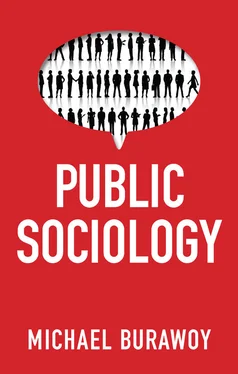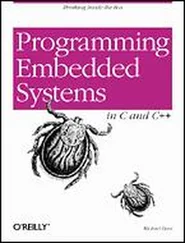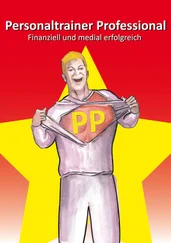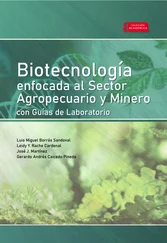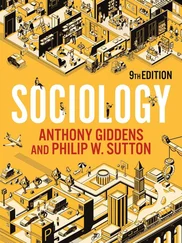241 232
242 233
243 234
244 235
245 236
246 237
247 238
248 239
Man would not have attained the possible unless time and again he had reached out for the impossible.
—Max Weber
What do they know of sociology, who only sociology know?
—Adapted from C. L. R. James and Rudyard Kipling
For all the students who have taught me so much.
Public Sociology
Between Utopia and Anti-Utopia
Michael Burawoy
polity
Copyright © Michael Burawoy 2021
The right of Michael Burawoy to be identified as Author of this Work has been asserted in accordance with the UK Copyright, Designs and Patents Act 1988.
First published in 2021 by Polity Press
Polity Press
65 Bridge Street
Cambridge CB2 1UR, UK
Polity Press
101 Station Landing
Suite 300
Medford, MA 02155, USA
All rights reserved. Except for the quotation of short passages for the purpose of criticism and review, no part of this publication may be reproduced, stored in a retrieval system or transmitted, in any form or by any means, electronic, mechanical, photocopying, recording or otherwise, without the prior permission of the publisher.
ISBN-13: 978-1-5095-1914-9
ISBN-13: 978-1-5095-1915-6(pb)
A catalogue record for this book is available from the British Library.
Title: Public sociology : between utopia and anti-utopia / Michael Burawoy.
Description: Cambridge, UK ; Medford, MA : Polity Press, 2021. | Includes bibliographical references and index. | Summary: “Why sociology matters, how sociologists can help the people they study and how it can help us to deal with the crises of the 21st century”-- Provided by publisher.
Identifiers: LCCN 2021006108 (print) | LCCN 2021006109 (ebook) | ISBN 9781509519149 (hardback) | ISBN 9781509519156 (paperback) | ISBN 9781509519187 (epub)
Subjects: LCSH: Sociology.
Classification: LCC HM435 .B87 2021 (print) | LCC HM435 (ebook) | DDC 301--dc23
LC record available at https://lccn.loc.gov/2021006108
LC ebook record available at https://lccn.loc.gov/2021006109
by Fakenham Prepress Solutions, Fakenham, Norfolk NR21 8NL
The publisher has used its best endeavours to ensure that the URLs for external websites referred to in this book are correct and active at the time of going to press. However, the publisher has no responsibility for the websites and can make no guarantee that a site will remain live or that the content is or will remain appropriate.
Every effort has been made to trace all copyright holders, but if any have been overlooked the publisher will be pleased to include any necessary credits in any subsequent reprint or edition.
For further information on Polity, visit our website: politybooks.com
2.1The Division of Sociological Labor
5.1 The Progress of Zambianization
10.1 The Dimensions of Racial Domination under Racial Capitalism
To the 1960s generation sociology promised so much – addressing questions of social justice, social inequality, social movements, and social change. Its potential was famously captured by the American sociologist C. Wright Mills in his definition of sociology as turning “personal troubles” into “public issues.” This proves to be easier said than done.
In the chapters that follow I explore the promise of sociology by tracing my own trajectory into and through the discipline. I set out for India in 1967 with the naïve view that sociology would fix social problems if only we have adequate knowledge based on rigorous research. We just have to inform policy makers and they will do the right thing. I call this species of sociology policy sociology . My first lesson in sociology was to learn the importance of the social, political, and economic context of decision-making. Recognizing the limits of this policy sociology led me to public sociology , which did not speak to policy makers. It transmitted the result of research to broad publics. Here, again, I was naïve, overlooking the operation of power within the public sphere that repressed, diverted, or co-opted the aims of public sociology. That was my second lesson – a lesson I learned in newly independent Zambia from 1968 to 1972.
Instead of giving up on sociology, I decided I didn’t have an adequate grasp of its intricacies and its underlying theory. I left Zambia for the PhD program at the University of Chicago. There I discovered that the material I was expected to learn and absorb, what I call professional sociology , was more concerned with preserving rather than changing the status quo – or changing it only to keep it the same. So my third lesson concerned the umbilical cord connecting professional sociology to ideology, its complacent adjustment to ubiquitous exploitation, domination, and dispossession. I was not the only one to be disappointed. I became part of a rising generation that advanced a critical sociology , critical of the world but also of the reigning professional sociology.
That was the 1970s, when critical sociology was gaining adherents in many universities, not just in the US but across the globe. After graduating from Chicago, through an unlikely succession of events, I landed in the Department of Sociology at the University of California, Berkeley. There the struggle between insurgent graduate students and divided faculty had been particularly intense. After six tumultuous years I survived a tenure battle by the skin of my teeth. During the 1980s, now with the security of tenure, I sought to contribute to an emergent Marxist research program that led me to explore the meaning and possibilities of socialism in Hungary and then in the Soviet Union. I had hardly begun research in the Soviet Union when it collapsed, turning into a crony capitalism that sought to wipe out its “communist” past. Witnessing the inevitable dénouement, what I would call involution , I felt helpless and ineffectual. My fourth lesson was the marginality of sociology to ongoing debates.
Disillusioned with my research, facing a backlash against Marxism, I was in retreat when my journey took an unexpected turn. It was 1996. Desperate for a new chair, my colleagues promoted me from departmental pariah to department head. From there I became head of the American Sociological Association and then head of the International Sociological Association. I had become a professional sociologist par excellence. I used these platforms to once again project the idea of public sociology.
Now I saw more clearly how public sociology depended on the three other knowledges – professional, policy and critical – if it was to create a conversation between sociologists and publics concerning the devastation of society. Drawing on my experiences in Russia I advanced theories of what has come to be known as neoliberalism, what I call third-wave marketization , how the world has been subjected to a destructive commodification of labor, nature, money, and knowledge. I searched for counter-tendencies, counter-movements that might avert the catastrophes that lay around the corner. I sought to understand how the commodification of knowledge was degrading the university – a vital source of alternative futures. With a better sense of the context and a more focused vision of what might be changed, I claimed to better understand the possibilities of public sociology – both its production and its reception. An evangelist for public sociology, I determined that teaching was my own immediate contribution to public sociology.
This is how I now make sense of my successive experiences as a sociologist, but those experiences emerged through a quite concrete research journey. If I began my initiation in 1967 in India, studying university education, for the next thirty-five years I became an intermittent worker – a “participant observer” of industry in Zambia, the US, Hungary, and Russia. My training as an anthropologist in Zambia led me to study others by joining them in their lives, that is, in their space and in their time. It meant that I became an unskilled worker in factories, helping to produce (and sometimes ruin) engines, gear boxes, steel, and furniture – my incompetence being an embarrassment and often a danger to myself and my fellow workers. I traced the lived experience on the shop floor to the wider political, economic, and social realms. I demonstrated how my experience in the Zambian mining industry expressed the transition to postcolonialism, how my experience in the Chicago branch of Allis-Chalmers reflected the physiognomy of advanced capitalism, how my experience in the auto industry and steel industries of Hungary carried the dynamics of state socialism, and how my experience in rubber and furniture plants in the Soviet Union was shaped by the demise of state socialism and the transition to capitalism. My professional life was enlivened by a continuing struggle to defend the legitimacy of such an extension from micro-processes to macro-forces, but such an extension is the necessary foundation of any public sociology, for turning those personal troubles into public issues.
Читать дальше
